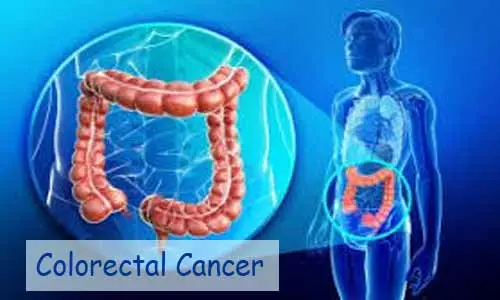- Home
- Medical news & Guidelines
- Anesthesiology
- Cardiology and CTVS
- Critical Care
- Dentistry
- Dermatology
- Diabetes and Endocrinology
- ENT
- Gastroenterology
- Medicine
- Nephrology
- Neurology
- Obstretics-Gynaecology
- Oncology
- Ophthalmology
- Orthopaedics
- Pediatrics-Neonatology
- Psychiatry
- Pulmonology
- Radiology
- Surgery
- Urology
- Laboratory Medicine
- Diet
- Nursing
- Paramedical
- Physiotherapy
- Health news
- Fact Check
- Bone Health Fact Check
- Brain Health Fact Check
- Cancer Related Fact Check
- Child Care Fact Check
- Dental and oral health fact check
- Diabetes and metabolic health fact check
- Diet and Nutrition Fact Check
- Eye and ENT Care Fact Check
- Fitness fact check
- Gut health fact check
- Heart health fact check
- Kidney health fact check
- Medical education fact check
- Men's health fact check
- Respiratory fact check
- Skin and hair care fact check
- Vaccine and Immunization fact check
- Women's health fact check
- AYUSH
- State News
- Andaman and Nicobar Islands
- Andhra Pradesh
- Arunachal Pradesh
- Assam
- Bihar
- Chandigarh
- Chattisgarh
- Dadra and Nagar Haveli
- Daman and Diu
- Delhi
- Goa
- Gujarat
- Haryana
- Himachal Pradesh
- Jammu & Kashmir
- Jharkhand
- Karnataka
- Kerala
- Ladakh
- Lakshadweep
- Madhya Pradesh
- Maharashtra
- Manipur
- Meghalaya
- Mizoram
- Nagaland
- Odisha
- Puducherry
- Punjab
- Rajasthan
- Sikkim
- Tamil Nadu
- Telangana
- Tripura
- Uttar Pradesh
- Uttrakhand
- West Bengal
- Medical Education
- Industry
Antibiotics use tied to higher risk of colon cancer: Study

Sweden: There is a clear link between taking antibiotics and an increased risk of developing colon cancer within the next five to ten years. This has been confirmed by researchers at Umea University, Sweden, after a study of 40,000 cancer cases. The impact of antibiotics on the intestinal microbiome is thought to lie behind the increased risk of cancer.
"The results underline the fact that there are many reasons to be restrictive with antibiotics. While in many cases antibiotic therapy is necessary and saves lives, in the event of less serious ailments that can be expected to heal anyway, caution should be exercised. Above all to prevent bacteria from developing resistance but, as this study shows, also because antibiotics may increase the risk of future colon cancer," explains Sophia Harlid, cancer researcher at Umeå University.
Researchers found that both women and men who took antibiotics for over six months ran a 17 per cent greater risk of developing cancer in the ascending colon, the first part of the colon to be reached by food after the small intestine, than those who were not prescribed any antibiotics. However, no increased risk was found for cancer in the descending colon. Nor was there an increased risk of rectal cancer in men taking antibiotics, while women taking antibiotics had a slightly reduced incidence of rectal cancer.
The increased risk of colon cancer was visible already five to ten years after taking antibiotics. Although the increase in risk was greatest for those taking most antibiotics, it was also possible to observe an admittedly small, but statistically significant, increase in the risk of cancer after a single course of antibiotics.
The present study uses data on 40,000 patients from the Swedish Colorectal Cancer Registry from the period 2010-2016. These have been compared to a matched control group of 200,000 cancer-free individuals drawn from the Swedish population at large. Data on the individuals' antibiotic use was collected from the Swedish Prescribed Drug Register for the period 2005-2016. The Swedish study broadly confirms the results of an earlier, somewhat smaller British study.
In order to understand how antibiotics increase the risk, the researchers also studied a non-antibiotic bactericidal drug used against urinary infections that does not affect the microbiome. There was no difference in the frequency of colon cancer in those who used this drug, suggesting that it is the impact of antibiotics on the microbiome that increases the risk of cancer. While the study only covers orally administered antibiotics, even intravenous antibiotics may affect the gut microbiota in the intestinal system.
"There is absolutely no cause for alarm simply because you have taken antibiotics. The increase in risk is moderate and the affect on the absolute risk to the individual is fairly small. Sweden is also in the process of introducing routine screening for colorectal cancer. Like any other screening programme, it is important to take part so that any cancer can be detected early or even prevented, as cancer precursors can sometimes be removed," says Sophia Harlid.
Reference:
The study titled, "Antibiotics Use and Subsequent Risk of Colorectal Cancer: A Swedish Nationwide Population-Based Study," is published in the Journal of the National Cancer Institute.
DOI: https://academic.oup.com/jnci/advance-article/doi/10.1093/jnci/djab125/6360113
Hina Zahid Joined Medical Dialogue in 2017 with a passion to work as a Reporter. She coordinates with various national and international journals and association and covers all the stories related to Medical guidelines, Medical Journals, rare medical surgeries as well as all the updates in the medical field. Email: editorial@medicaldialogues.in. Contact no. 011-43720751
Dr Kamal Kant Kohli-MBBS, DTCD- a chest specialist with more than 30 years of practice and a flair for writing clinical articles, Dr Kamal Kant Kohli joined Medical Dialogues as a Chief Editor of Medical News. Besides writing articles, as an editor, he proofreads and verifies all the medical content published on Medical Dialogues including those coming from journals, studies,medical conferences,guidelines etc. Email: drkohli@medicaldialogues.in. Contact no. 011-43720751


